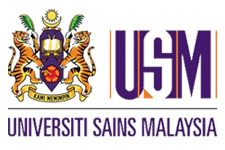Food Technology provides massive amounts of food, which is assured in its quality and safety with over seven billion mouths to feed in the world today. This would be impossible without utilizing the proper science and technologies.
Many individuals are involved for food products to reach store shelves; most are trained food scientists or technologists. They can be involved in the production, quality assurance, quality control, product development, and other jobs related to the marketing and distribution of food products.
However, consumers are asking more. They want food products that deliver beyond nutritional content and health-enhancing ingredients that promote healthy lifestyles and reduce risks of diseases. This is a tall order for ordinary food technologists who are not trained to reformulate existing products but typically follow standard preparation methods. Creativity and innovative mindsets are needed to change ordinary foods to functional foods. These new technologists are called functional food technologists or scientists.
Functional food research in Malaysia is still fundamental, and the development of the industry is still somewhat constrained. Nonetheless, for the past 10-15 years, functional food scientists have been busy testing and validating new ingredients for health optimization. These efforts have isolated compounds that impart health benefits when consumed frequently. These functional ingredients include dietary fibres, antioxidants, probiotics, prebiotics, enzymes, specific vitamins and minerals, peptides, and oligosaccharides. The market for these new ingredients is so large that many new food-pharmaceutical companies are formed to process and continue researching these high-end ingredients, most of which are still being imported from developed nations.
We lead, with science
Local researchers are doing well. They have found plenty of success in their research efforts, bringing discoveries and innovations.
Like any other research field, good functional food science researchers are hard-working people with the proper qualification and talent. Scientific thinking is one thing; researchers must also be creative to solve the reformulation problem. However, ideas are cheap; what matters is innovation - the transformation of ideas into something useful, yielding values with income-generating potentials.
A leading functional food researcher in USM is Professor Dato’ Dr Azhar Mat Easa. Despite his work being published in many reputable scientific journals, his personal goal is to push his ideas to fruition and reach the market to benefit from them. His latest idea is about developing sodium-free noodles.
Sodium is a known regulator of blood pressure. Increased intake of high-sodium foods causes our body to hold onto more water, increasing blood pressure. This extra pressure strains our cardiovascular system, eventually leading to worse cardiovascular disease outcomes over time. Therefore, sodium restriction may reduce systolic and diastolic blood pressure, primarily among people with higher blood pressure. Unfortunately, salt (sodium chloride) is added to noodles during processing.
Salt reduction in noodles has technical difficulties because noodles need salt to perform techno-functional functions. Prototypes developed by Azhar and his team have unique features, which are sodium-free, but they have similar structural integrity, textural, cooking, handling and sensorial properties, and shelf life to commercial noodles. These noodles will offer a healthier alternative to conventional noodles.
The future of the functional food industry
Professor Azhar is confident that the functional food industry will grow and flourish in Malaysia.
In future, better informed and educated consumers will develop more sophisticated tastes and preferences and look for the added functions of products such as health, convenience, freshness and minimal processing. Among these, health is the number 1 factor for choosing food products. Therefore functional food research is all about SDG 3 (Health and Wellbeing) and not about SDG 2 (Eliminating Hunger).















